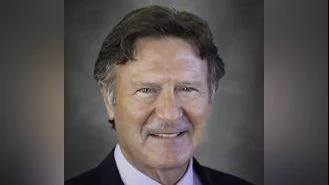A state senator is expressing support for law enforcement amid debate over the SAFE-T Act. | Michael Förtsch/Unsplash
A state senator is expressing support for law enforcement amid debate over the SAFE-T Act. | Michael Förtsch/Unsplash
Sen. Dan McConchie (R-Cook) expressed his support for law enforcement as debate swirls around the state of Illinois' controversial SAFE-T Act.
"Radicals on the left have made law enforcement funding a political issue," the senator said on Facebook. "In my opinion, the duties and protection of law enforcement are too important to politicize. I'll always back our heroes in blue."
The Illinois Safety, Accountability, Fairness and Equity-Today (SAFE-T) Act will eliminate cash bail by 2023, allow certain people accused of felonies to avoid being detained before trial, and impose restrictions on Illinois police officers. Law enforcement groups and police unions said the SAFE-T Act poses a threat to public safety, according to Injustice Watch.
Multiple state's attorneys expressed concern over the legislation at a recent media briefing, according to The Center Square. One of the biggest concerns for many is the elimination of cash bail, which will take effect on Jan. 1, 2023. An unnamed state's attorney said, "With this new law, our hands will be tied. What sane citizen in this state of Illinois would want the state’s attorney’s hands tied, the police hands tied, and give all the perks going to violent offenders. That's what this law does."
Sen. Dale Fowler (R-Pope) said that some of the provisions regarding law enforcement are driving people away from the field.
“It's been very frustrating to see our law enforcement officers retire early, some of our sheriffs retire early, and our students not wanting to go into the law enforcement field,” Fowler said.
The Illinois Legislative Black Caucus, which pushed for the SAFE-T Act, released a statement earlier this year that said, "As usual with the Republican party, any effort to make the justice system fairer for Black people is called dangerous. With this law, we have worked directly with community organizations, legal rights advocates, and law enforcement to make our justice system more effective and more just at the same time. That’s why the Illinois State Police and other law enforcement groups continue to work with us on this bill."




 Alerts Sign-up
Alerts Sign-up